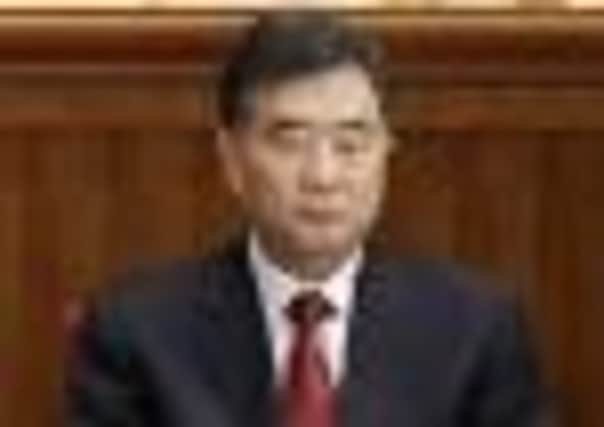Bo Xilai’s downfall clears the way to leadership for his reformist rival


Wang Yang, leader of Guangdong province and well known for his deft handling of recent civil unrest there, is the first of three provincial-level party bosses who stand to benefit after a murder scandal snuffed out Mr Bo’s career last month.
Mr Bo, once seen as a favourite of the party’s conservatives, was a strong contender to join China’s top decision-making body in a leadership transition due to be completed by March. His political demise is now an opportunity for rivals such as Mr Wang.
Advertisement
Hide AdAdvertisement
Hide AdMr Wang, 57, used his provincial party congress meeting this month to garner publicity ahead of the 18th national Party Congress where, late this year, a new and younger leadership group will be unveiled to replace President Hu Jintao’s team.
Mr Wang’s performance at the Guangdong congress highlighted his image as the politician most likely to take up the reformist mantle of outgoing prime minister Wen Jiabao, who had seen Mr Bo as a threat to his reform legacy and moved swiftly to cut him down.
“Wang Yang’s speech was sort of valedictory,” said Willy Lam, a Hong Kong-based expert on the Chinese leadership.
“People think that he will be the next Wen Jiabao, the standard bearer of the liberals in the new Standing Committee.”
Mr Wang’s reformist credentials were burnished last year when he ended a revolt in the village of Wukan with a soft touch and no bloodshed. The villagers ended a ten-day stand-off and went on to hold local elections. He has also promoted various experiments in administrative reform over the years.
At his Guangdong congress, Mr Wang gave a nod towards freer markets and a lighter hand of the state in ordinary peoples’ lives.
He said: “We must get rid of the misconception that the people’s happiness is a gift from the party and government [and] respect the peoples’ initiative, so that the people boldly explore their own path to happiness.”
Mr Wang, however, has competition from other provincial leaders who also see an opportunity for advancement to the pinnacle of power now that Mr Bo has fallen away.
Advertisement
Hide AdAdvertisement
Hide AdShanghai party chief Yu Zhengsheng opened his city congress last Friday and Zhang Gaoli, the party boss of the northern port city of Tianjin, kicks off his meeting today.
Mssrs Wang, Yu and Zhang are all contenders for the nine-member Politburo Standing Committee – expected to be led by Mr Hu’s anointed successor, Xi Jinping – and their congress speeches offer clues to how warmly the new leadership will embrace economic, and even political reform.